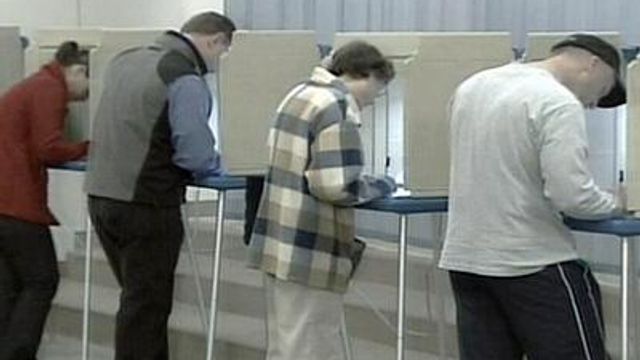Unaffiliated Voters Could Swing N.C. Primaries
About one-fifth of North Carolina's 5.7 million registered voters aren't Democrats or Republicans, and politicians are working hard to attract the growing bloc of unaffiliated voters.
Posted — UpdatedUnaffiliated voters can choose a primary in which to vote in North Carolina, and thousands of voters have switched their enrollments in recent months to be eligible to vote in the Democratic presidential race between Hillary Clinton and Barack Obama.
According to the State Board of Elections, about 12,600 voters switched from Republican to unaffiliated or to Democrat from January through the end of March. Meanwhile, about 6,000 switched their enrollments to the GOP.
In previous elections, most unaffiliated voters cast ballots in North Carolina's Republican primary, but the Obama-Clinton contest is expected to reverse that history this year while also generating record voter turnout.
Charlotte Mayor Pat McCrory, who is seeking the Republican gubernatorial nomination, said heightened interest in the Democratic presidential primary could cost him independent votes he has traditionally attracted.
"It does concern me because the national media is making the North Carolina election on May 6 seem like the only thing on the ballot is Obama and Hillary, when it's not," McCrory said.
Damon Circosta, director of political programs and operations for the North Carolina Center for Voter Education, said unaffiliated voters were on the upswing before attention became focused on the presidential primary.
"Long-term unaffiliated voting is on the rise either because people are disenfranchised with the political parties as they are or they want more choice in voting," Circosta said.
North Carolina State University senior Randy Freeman fits that description.
"I just didn't want to be pinned down to one party and (wanted to) pick who I like the best," Freeman said.
Democratic consultant Brad Crone said candidates must reach beyond the party base.
"(The trend) clearly shows both parties are going to have to compete for their votes," Crone said. "It's going to create a huge shift in state politics because the independent voters are more middle of the road."
• Credits
Copyright 2024 by Capitol Broadcasting Company. All rights reserved. This material may not be published, broadcast, rewritten or redistributed.





